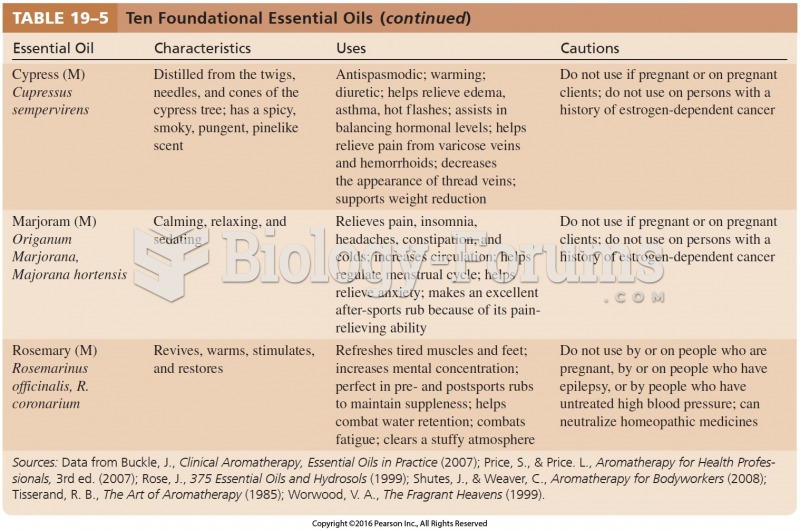This topic contains a solution. Click here to go to the answer
|
|
|
Did you know?
Not getting enough sleep can greatly weaken the immune system. Lack of sleep makes you more likely to catch a cold, or more difficult to fight off an infection.
Did you know?
For high blood pressure (hypertension), a new class of drug, called a vasopeptidase blocker (inhibitor), has been developed. It decreases blood pressure by simultaneously dilating the peripheral arteries and increasing the body's loss of salt.
Did you know?
Asthma cases in Americans are about 75% higher today than they were in 1980.
Did you know?
Approximately 25% of all reported medication errors result from some kind of name confusion.
Did you know?
Medication errors are three times higher among children and infants than with adults.







